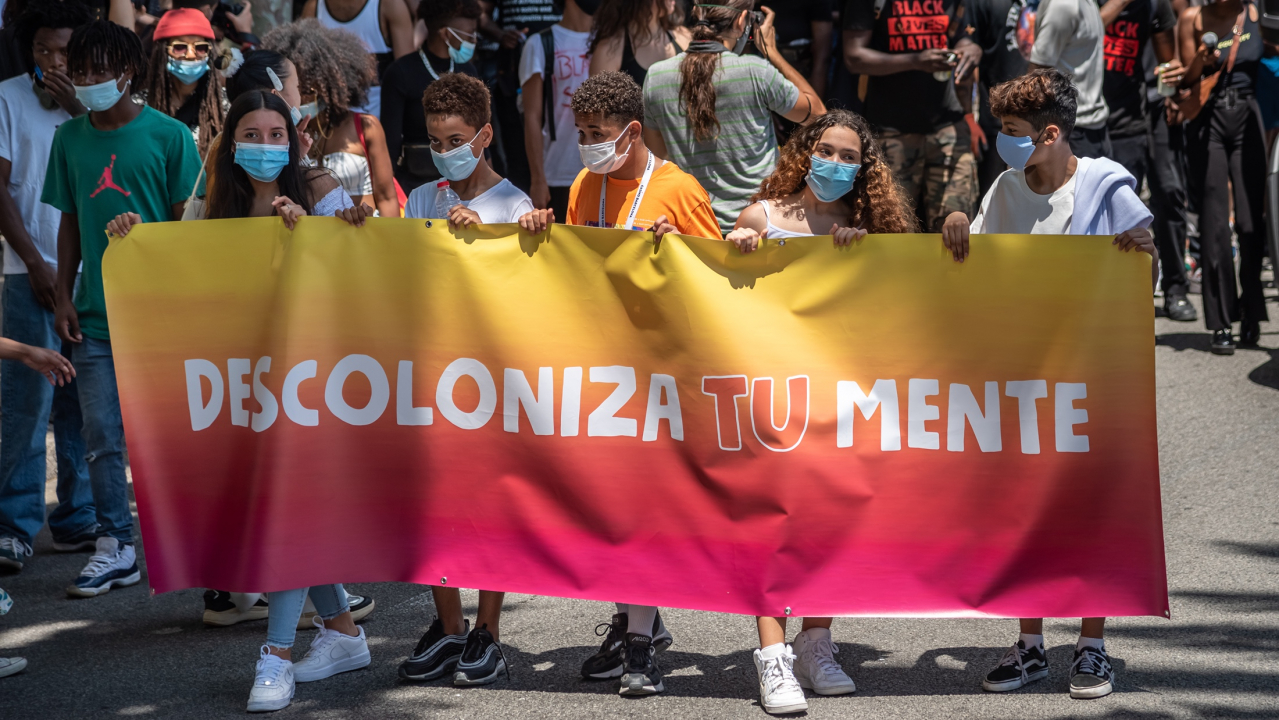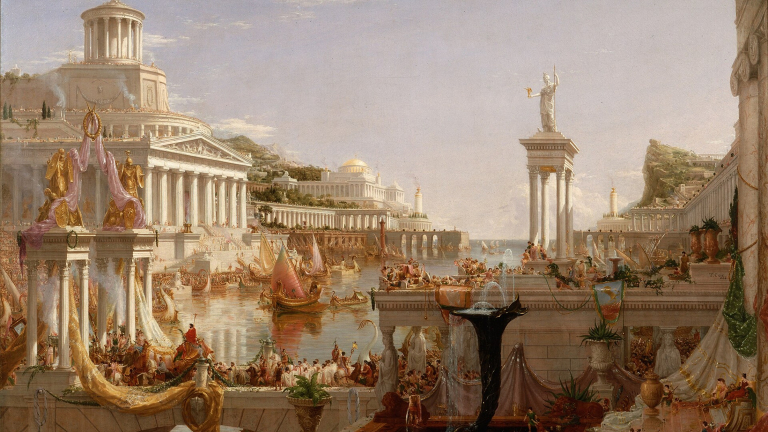Almost all British, American, Canadian and Australian universities now claim either to have, or to be in the process of, decolonising the curriculum. They typically define this project as being concerned with ‘identifying, acknowledging and challenging the ways in which colonialism has impacted upon perceived knowledge and learning.’ In the UK, the National Education Union, the country’s largest teachers’ association, argues that: ‘decolonising education involves examining the limitations and biases of the current curriculum; the omissions in initial teacher education and training; and examining the political and societal legacies of colonialism and how they have influenced education policies.’
The word ‘decolonise’ originally referred to the period following World War Two when formerly colonised countries, primarily in Africa, sought independence. In this context, decolonisation was an important practical and political process. Liberation meant replacing western institutions with more democratic forms of government that would, in theory if not always in practice, better serve the needs of national citizens.
The meaning of ‘decolonisation’ began to shift with the publication, in 1978, of Orientalism by Edward Said. Said argued that imperialism persisted after the age of empire because of the dominant assumption that white, western societies were the norm and formerly colonised nations were an inferior ‘other’. This ‘Orientalism’, Said claimed, was created by ‘a very large mass of writers, among whom are poets, novelists, philosophers, political theorists, economists and imperial administrators,’ and now lives on in education, culture and discourse. In other words, western governments could withdraw soldiers from African nations but oppression would continue while western knowledge and ways of thinking continued to exist in people’s minds. In this way, the meaning of decolonisation shifted from a practical to an intellectual process; from occurring within nations to within individuals; and from occurring in formerly-colonised countries to within western civil society.
Said and post-colonial theorists sowed the intellectual groundwork for the decolonise movement in universities throughout the 1980s and 1990s. But as a campaigning force, it is generally recognised to have spread around the world from student protests which began at South African universities. In 2015, campus statues of colonialist and philanthropist Cecil Rhodes became a particular target. Under the slogan ‘Rhodes Must Fall’, the campaign soon spread to the UK, and the University of Oxford in particular. Although the immediate demand was for the removal of statues, the movement had a bolder, broader aim to address the ‘unequal vision of the world as it manifests itself within universities’. That same year students at University College London launched the ‘Why is my curriculum white?’ campaign which demanded changes to the content of degree courses and, in the USA, campus protests against racial discrimination became widespread. The death of American George Floyd in 2020 focused renewed attention on decolonising schools and universities. Although ostensibly begun by students, campaigns have been readily taken up by university administrators and teaching unions.
Decolonise campaigns are fuelled by the idea that the legacy of colonialism endures in the knowledge taught to students. The assumption is that the curriculum presents a white, western intellectual tradition as universal; the privileging of Kant, Shakespeare and Pythagoras normalises a Euro-centric and Enlightenment-focused view of the world. This, decolonisers argue, reproduces racism in the present. Decolonising education, then, means removing not just the legacy of the past as it lives on in statues, plaques and the names of buildings, but, far more fundamentally, rooting out ‘white’ knowledge. For this reason, no matter how it may be presented, decolonise campaigners always seek to go beyond merely adding new, diverse authors into an already existing curriculum.
To decolonise the curriculum is to destroy the project of education itself. Its fundamental premise is that books, theories, works of art and musical scores have no intrinsic value but simply reflect the identity of the originator. With this view established, it draws upon theories of intersectionality to create hierarchies of oppression. Work by white men who, it is argued, have traditionally been over-represented as the embodiment of white, western ideas, must be dropped and replaced with work by more diverse, and therefore more deserving, others. This racialises knowledge in a way that overturns the intellectual gains of the Enlightenment. It ignores the objectivity of science, the political neutrality of mathematics and the universality of classic literature. Prominent black intellectuals like W.E.B. DuBois and C.L.R. James once revelled in access to canonical works. ‘I denounce European colonialism’, wrote C.L.R. James in 1980, ‘but I respect the learning and profound discoveries of Western civilisation.’ Sadly, few now make such claims.
The goal of decolonised schools and universities is, then, to decentralise the western intellectual tradition in favour of content that can be shown to represent biological, rather than intellectual, diversity. It is identity, not intellectual or artistic merit, that now determines whether a book or an author is deemed worthy of inclusion in the curriculum. This represents a fundamental attack not just on the values of the Enlightenment but on the nature of knowledge itself. When all knowledge is questioned, and education is separated from the legacy of the past, schools and universities become institutions in search of a purpose.
The logic of the decolonise movement dictates that knowledge is replaced by activism. More than 650 schools in England have signed up to an anti-racist curriculum programme titled the Diverse Curriculum – the Black Contribution. Pupils are taught subjects including the history of the Windrush generation, how to engage in activism, the problem with British identity, and the importance of diversity in the arts and science. Likewise, schools in Brighton have signed up to the council’s ‘Anti-Racist Schools Strategy’ that requires the teaching of ‘key aspects of racial literacy’, including an ‘historical understanding of the construction of “race”, an understanding of structural / systemic racism and an understanding of contemporary manifestations and reproductions of “race” both in and out of schools’. Rather than imparting knowledge, decolonised schools are engaged in divisive political indoctrination.









